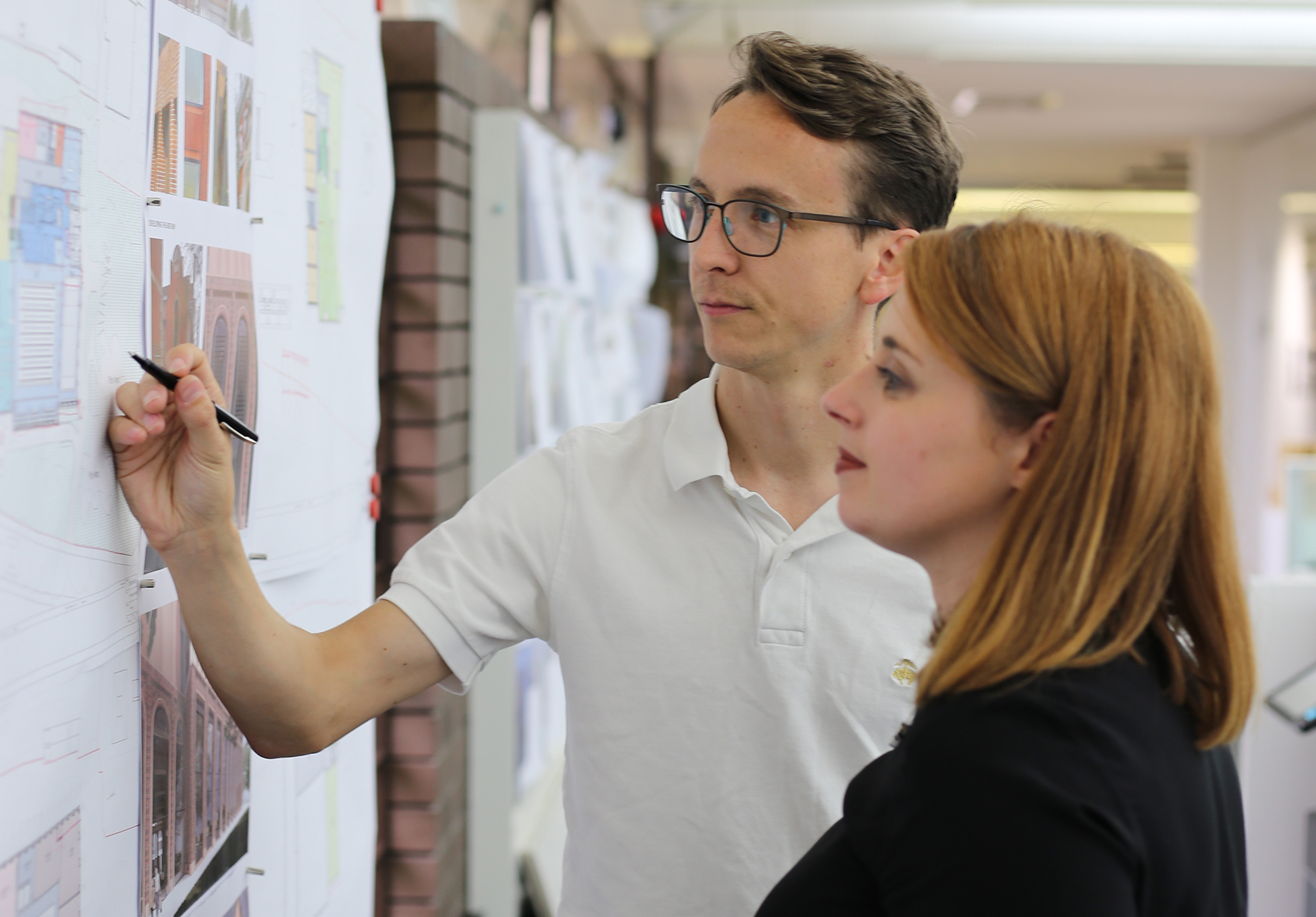Architecture needs apprentices

Laura McClorey
Architect
Laura's work at FaulknerBrowns has focused on leisure and cultural projects. She first joined the practice in 2015 having graduated from Ulster University, where she was awarded the Royal Society of Ulster Architects’ medal for Best Undergraduate Architecture Student in Northern Ireland. Prior to commencing her apprenticeship, she completed a master’s with distinction in International Business Management at Newcastle University, where she developed an interest in corporate social responsibility. In 2022, Laura was named Technical Apprentice of the Year in the Constructing Excellence Generation4Change awards for her passionate promotion of architectural apprenticeships.

This week the Architects Registration Board (ARB) announced a new vision for the way future architects are trained, an ‘outcomes-based' system that recognises ‘what you know’ and ‘what you can do’. This endorses the decision I made to be one of FaulknerBrowns’ first architectural apprentices - I believe ditching the usual path to qualification is the best career move I have made.
Architecture degrees are known to be gruelling, and taking one on at master’s level alongside work in practice has not been easy, but has been rewarding. Architectural apprenticeships are only in their fourth year and are an attractive option now that fees for education in England are at an all-time high. Most would-be architects get their bachelor’s degree, followed by a year in practice and a master’s, before finally returning to practice for professional qualification. The Architects' Journal once estimated that this route can leave students with up to £100,000 of debt.
After my year out at FaulknerBrowns I realised the traditional route to qualification was not for me and I decided to take some time away from architecture. The break was a formative time for me professionally – I diversified and completed a master’s degree in business, but my heart was still in architecture. So, when one of FaulknerBrowns’ partners told me about the ‘Architect Degree Apprenticeship’ course at Northumbria University, I jumped at the opportunity.

Whilst working in practice, students complete their qualifications part-time over four years, making qualifying far more accessible. Sponsor practices can pay university fees whilst the apprentice continues to earn. This opens the profession up to those who might not have considered a long and drawn out education, bringing greater diversity to the industry.
Through this route, I have learnt to design by working out real-life problems on real-life projects. Working in practice has allowed me to see projects progress from inception to completion. I am currently working on two community centres in London, gaining an insight into the complexities of designing in the city centre. This has given me the confidence to lead design and skills that have supported my work in university.
My continued role in practice has also maintained a sense of belonging to a studio culture, which has been crucial during the pandemic. My workplace mentor, Nick Heyward, has always been on hand to assist me.
This coming academic year will see the first cohort of architects joining the register via apprenticeship. This training route proves there are many valuable paths to qualification as an architect. Being an apprentice has allowed me to learn and grow as a professional and I would encourage anyone to follow suit.
